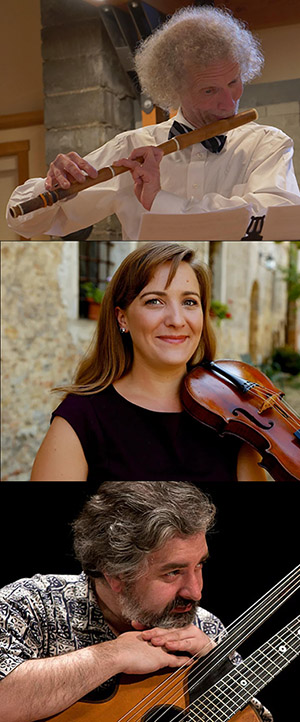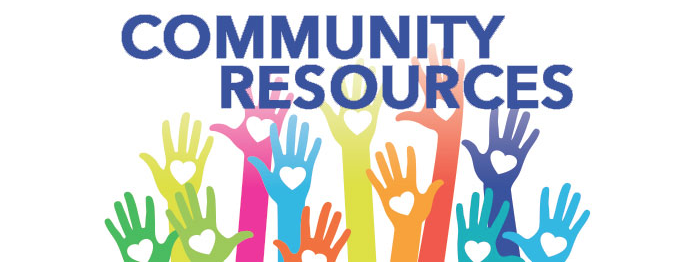||| FROM JEFFREY COHAN for SALISH SEA EARLY MUSIC FESTIVAL |||
The twelfth annual 2023 Salish Sea Early Music Festival presents the second of seven programs through June entitled The Biedermeier Serenade featuring guitarist Oleg Timofeyev, flutist Jeffrey Cohan and violist Lindsey Strand-Polyak in a program of trios from the time of Beethoven performed on period instruments on Wednesday evening, February 22 at 6 p.m. at the Orcas Adventist Fellowship Church at 107 Enchanted Forest Road in Eastsound.
Trios for flute, viola and guitar representative of the early 19th-century Biedermeier period by Austrian guitarist Matiegka, German flutist Kummer, Italian guitarist Molino and French flutist Devienne will be performed on an English viola from 1750 and bow typical of those of the early 19th-century with a flute and guitar both made in London and Russia in 1820.
Additional Program Information
The early 19th-century Biedermeier period generated styles in music, architecture and the other arts that reflected the growing urbanization and industrialization of a period of political stability in central Europe, which fostered an increased appreciation for the arts by the new urban middle class audience, alongside a hunger for furniture design, interior decorating and a flood of output by composers that fulfilled a burgeoning desire for in-home music making.
The program will include the Serenade for Flute, Viola and Guitar, Opus 83 published in Offenbach and Paris in 1835 by the German flutist and composer Gaspard Kummer (1795–1870), the Second Grand Trio Concertant, Opus 45 published in about 1830 by Francesco Molino (1768 – 1847), an Italian guitarist, violinist, and composer, and the Noturno for Flute, Viola and Guitar, opus 21 published in Vienna in about 1807, by Wenzel Thomas Matiegka (1773 – 19 January 1830), a prominent Viennese guitarist, composer and teacher of the piano. In 1814 this Matiegka Noturno caught the attention of Franz Schubert, who arranged it with the addition of cello and an additional movement for his family’s use. This sonority of the combination of flute, viola and guitar that was so popular In Beethoven’s day is also represented in the early 20th century in Debussy’s Trio for flute and viola with harp as the plucked instrument, and around 1700 at the court of Louis XIV in Suites by many composers for viola da gamba and either guitar or lute with the flute of that day.
Oleg Timofeyev’s instrument was made in Russia by an anonymous builder in about 1820. The seven-string guitar was born on Russian soil as a hybrid product of the Spanish guitar (the familiar one) and the cittern called “the English guitar” that was brought to the Russian Empire by the Czechs and Poles. But the actual figure-eight-shaped instrument equipped with seven strings tuned to a G major chord has only been played in Russia, Poland, and various Soviet Republics, from Georgia to Estonia. Oleg Timofeyev is the 7-string guitar’s premier expert in North America.
Jeffrey Cohan will play an 8-keyed flute of cocuswood with silver keys and three ornamental silver rings at each joint, made in London in 1820 by George Rudall. Similar flutes are favored still today by the most well-known Irish traditional music players, notably Matt Malloy of the Chieftans. Lindsey Strand-Polyak plays a viola made in about 1720 in England with a bow like those played in the early 19th century.
The entire 2023 remaining festival program follows, with six Wednesdays and one final Saturday evening at the Orcas Adventist Fellowship Church. Admission is by suggested donation of $20 or $25 (a free will offering), and those 18 & under are free. For additional information please see www.salishseafestival.org/orcas.
The Salish Sea Early Music Festival, a 501(c)3 non-profit organization, is proud to be an affiliate organization of Early Music America, which develops, strengthens, and celebrates early music and historically informed performance in North America. SSEMF has presented countless first performances in modern times of period instrument renditions of early works.
**If you are reading theOrcasonian for free, thank your fellow islanders. If you would like to support theOrcasonian CLICK HERE to set your modestly-priced, voluntary subscription. Otherwise, no worries; we’re happy to share with you.**







